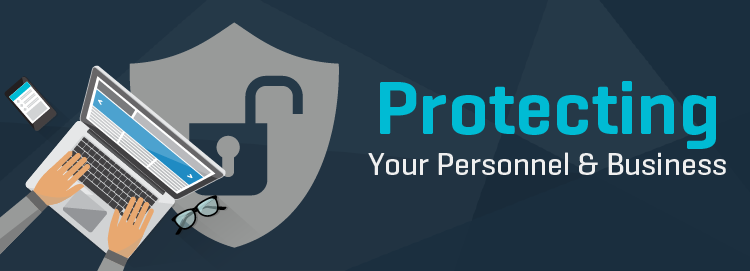Cyber crimes is now more popular than ever. But people still underestimate the whole importance of keeping their devices safe. Especially when they own a business, which uses IT technologies.
What is the price of carelessness? To underestimate the risk of cyberattacks and the extent of damage means to deny the facts and endanger the business. According to Cybersecurity Ventures, losses from hacker attacks will amount to $ 6 trillion by 2021 (for comparison: in 2015, cybercrimes were estimated at $ 3 trillion). This year’s July Hackmageddon report calls malware the main attack method that affects both individual realms and individuals.
At risk is all organizations, regardless of ownership, size or industry. Business is not attacked by cars, but by people, and very talented ones: there is no single algorithm or antidote to neutralize them.
So, we’ve decided to give you some advices on how to protect yourself from cyber attacks.
Backing up data. Cloud services allow you to store a backup copy of data outside the workplace and gadgets, which makes it possible to access it at any time from any device, even if data on the working device is lost.
Table of Contents
Minimize the use of mobile devices
Tablets and smartphones are no less susceptible to attacks. TechBeacon reports the results of a study showing that companies that allow employees to use mobile devices for work are regularly attacked. If there are more than 500 of these gadgets, the chance of becoming a victim of an attack is 100%. The average number of attacks is 54 per year (per business). This is an occasion to develop security rules that prohibit working with strategically important information from a smartphone.
Using licensed software
Use licensed software and regularly install updates. There are vulnerabilities in any software; developers regularly test it for errors and issue the necessary patches. But pirated versions of this advantage are deprived. Not to mention the fact that the pirated version may initially contain malicious code.

Countering phishing
Phishing is a type of fraud in which an attacker, using a variety of tricks, encourages the user to voluntarily provide personal data. Security trainings will not be superfluous, where each employee will learn how to recognize and prevent phishing attempts.
Password strength control
According to CSO, 81% of data leaks occur due to password cracking. Therefore, the team must know how strong and weak passwords look. It will not be superfluous to set up password managers that will automatically generate and save them.
Using 2FA (two-factor authentication)
Two-factor authentication is a double protection: first, the system asks you for a password, and then sends a confirmation code to another device (for example, SMS to the phone). Even if an attacker picks up a password, he will not be able to log in without access to the second device.
Remember, most of the cyber crimes can be prevented by these simple procedures. However, they do not guarantee you 100% security. To be more secure we advise you to hire a specialist that will take care about the defence of your data.
